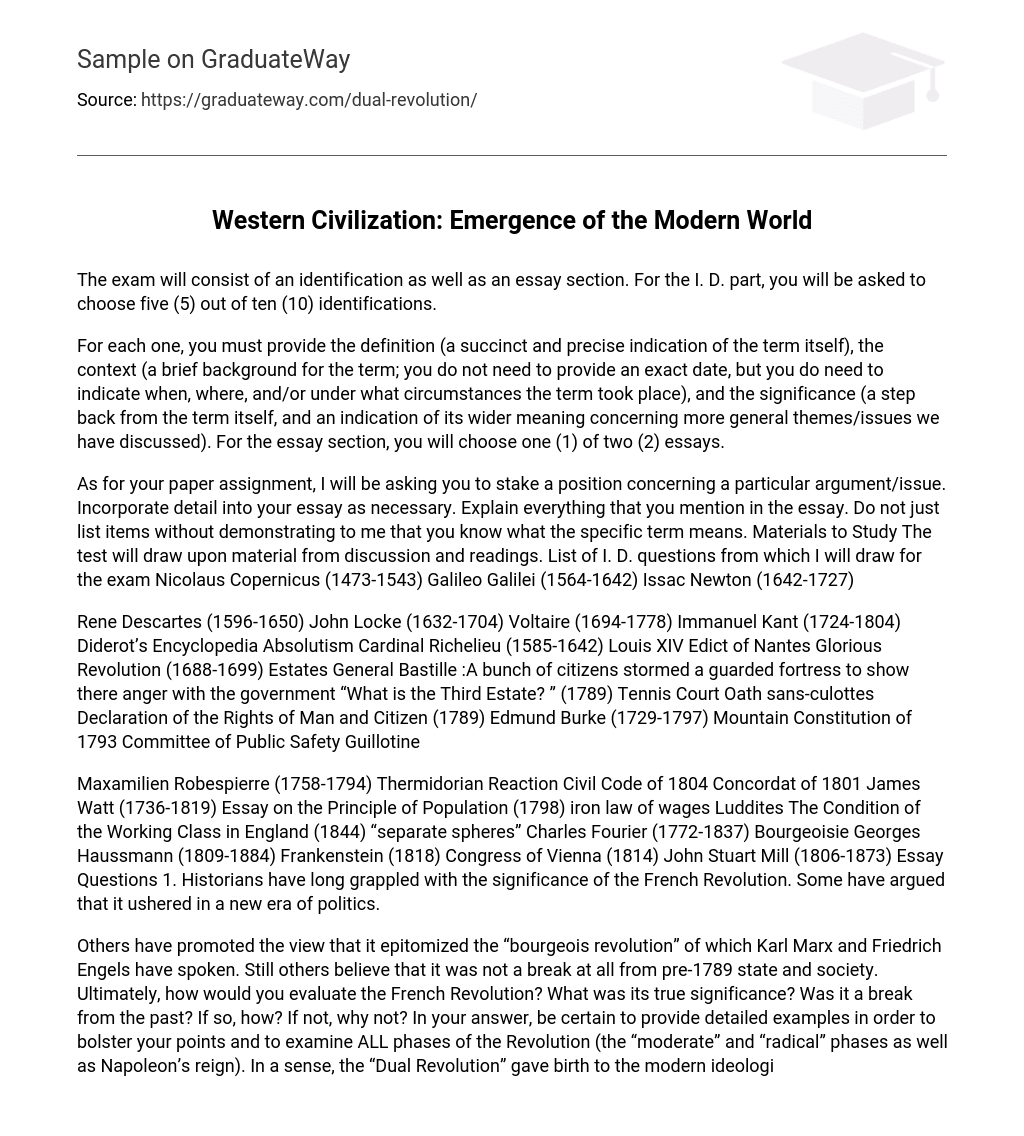The exam will include two sections: identification and essay. In the identification section, you must select five (5) out of ten (10) options.
In the essay section, you will be presented with two choices. Each choice will require you to define, contextualize, and explain the importance of a specific term. The definition should be concise and easily understandable. The context should provide a brief history or background on the origin of the term, including when, where, and/or under what conditions it emerged. Finally, the significance should explore how the term relates to broader themes and issues that are being discussed.
For your paper assignment, you need to take a stance on a specific argument or issue and provide comprehensive explanations for all the points you mention. It is crucial to show your understanding of the terms by incorporating relevant details into your essay rather than just listing them. The test will cover material from our class discussions and assigned readings. Below is a list of potential identification questions that may appear on the exam, from which I will choose:
- Nicolaus Copernicus (1473-1543)
- Galileo Galilei (1564-1642)
- Issac Newton (1642-1727)
The text mentions several important figures and events in European history, such as Rene Descartes, John Locke, Voltaire, Immanuel Kant, Cardinal Richelieu, Louis XIV, Diderot’s Encyclopedia, Absolutism, the Edict of Nantes, the Glorious Revolution, the Estates General, the Bastille, the “What is the Third Estate?” pamphlet, the Tennis Court Oath, the sans-culottes, the Declaration of the Rights of Man and Citizen, Edmund Burke, the Mountain (a political group during the French Revolution), the Constitution of 1793, the Committee of Public Safety, and the Guillotine.
Historically significant topics include Maxamilien Robespierre (1758-1794), the Thermidorian Reaction, the Civil Code of 1804, the Concordat of 1801, James Watt (1736-1819), the Essay on the Principle of Population (1798), the iron law of wages, Luddites, the Condition of the Working Class in England (1844), “separate spheres,” Charles Fourier (1772-1837), the Bourgeoisie, Georges Haussmann (1809-1884), Frankenstein (1818), the Congress of Vienna (1814), and John Stuart Mill (1806-1873). Ongoing debates among historians revolve around assessing both the significance and potential impact of the French Revolution in initiating a new era of politics.
Various interpretations of the French Revolution exist, with Karl Marx and Friedrich Engels viewing it as a “bourgeois revolution,” while others argue that it did not entirely break away from the pre-1789 state and society. To fully grasp its significance, we must consider all phases of the revolution, including the “moderate” and “radical” stages, as well as Napoleon’s rule. Additionally, the “Dual Revolution” gave rise to modern ideologies like conservatism, liberalism, socialism, and romanticism. Analyzing these ideologies helps in understanding how each belief system perceived and assessed both the French and Industrial Revolutions.
From 1774-1792, Louis XVI served as King of France. He convened the Estates-General in 1789 but failed to implement requested reforms, ultimately igniting a revolution. As a result, both Louis XVI and Marie Antoinette were executed in 1793.





